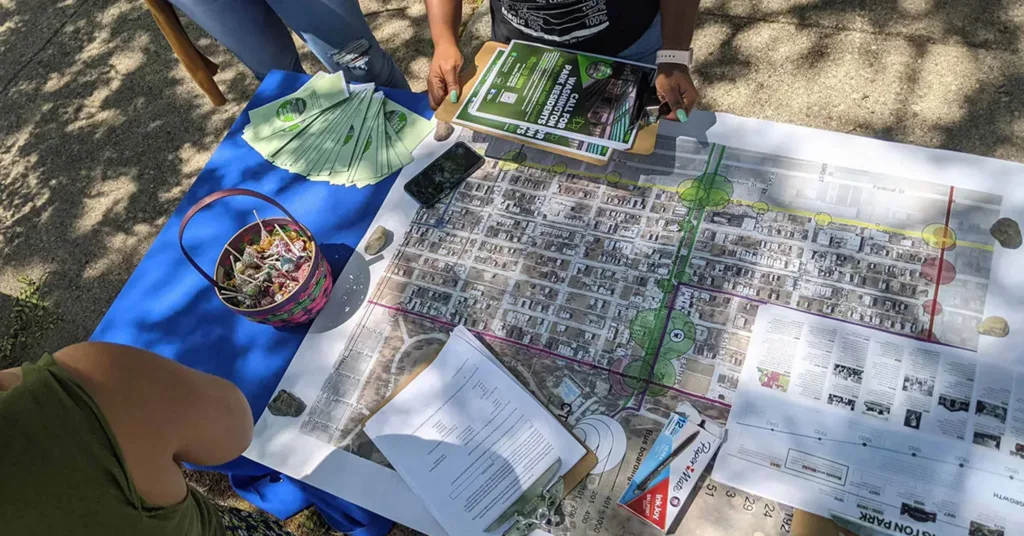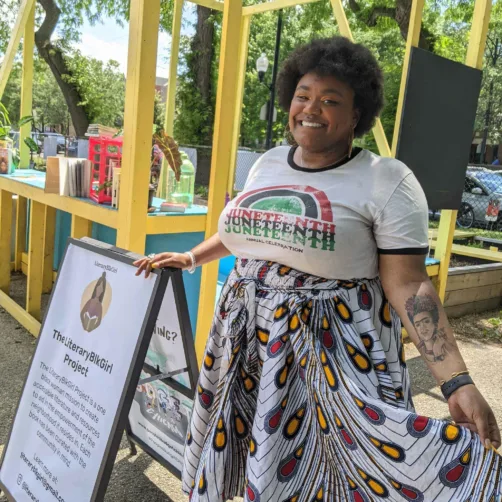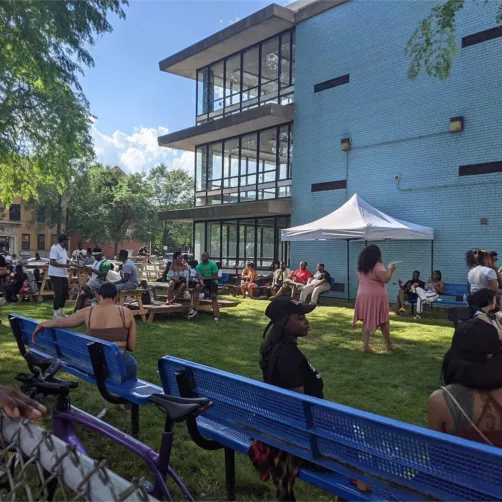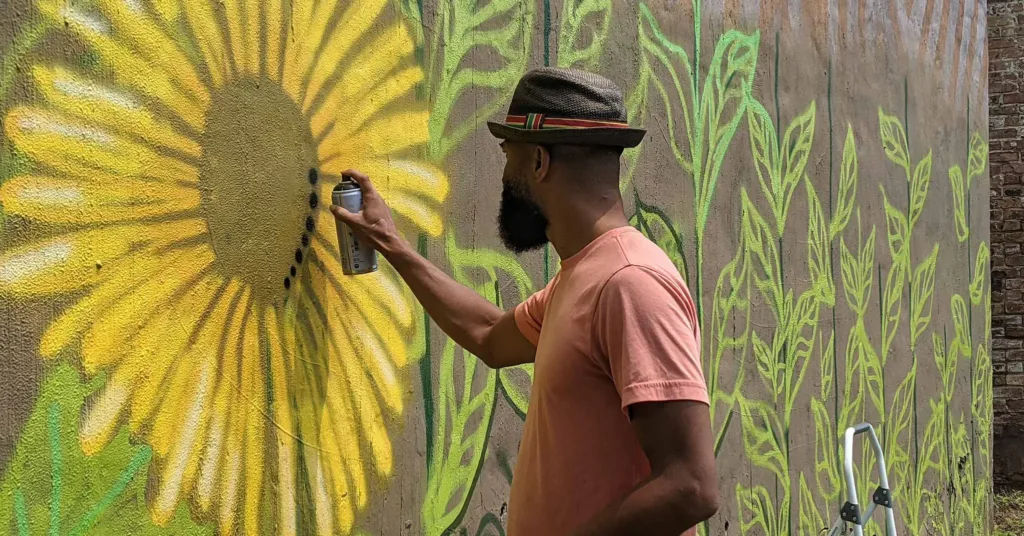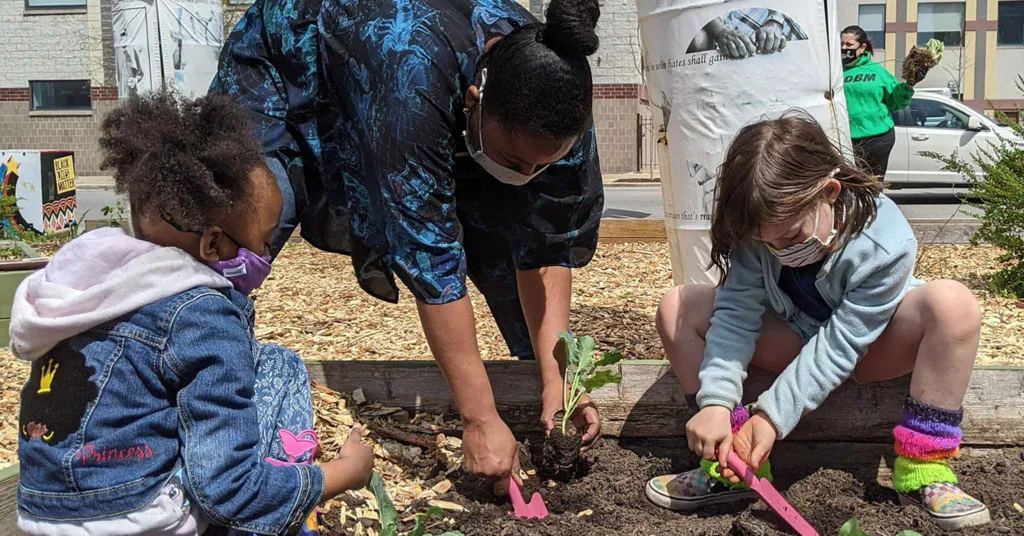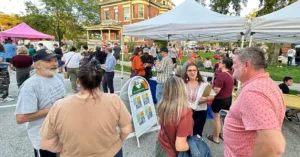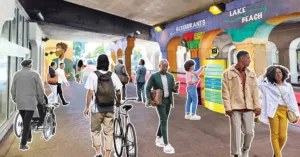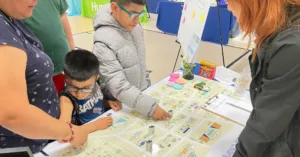NURTURING WHAT'S WORKING FOR INCLUSIVE GROWTH
Building on Elevated Chicago’s Green Line South Action Plan efforts, MUSE led the development of an equitable and inclusive economic development strategy in the Washington Park community. Using storytelling principles, we partnered with residents and stakeholders to create an action guide that highlights community assets and empowers residents to bring recommendations to life.
Details
Client: Regional Transportation Authority (RTA)
Chicago, IL
March – September 2022
Scope of Work
Market analysis
Community + stakeholder engagement
Graphic design
Link
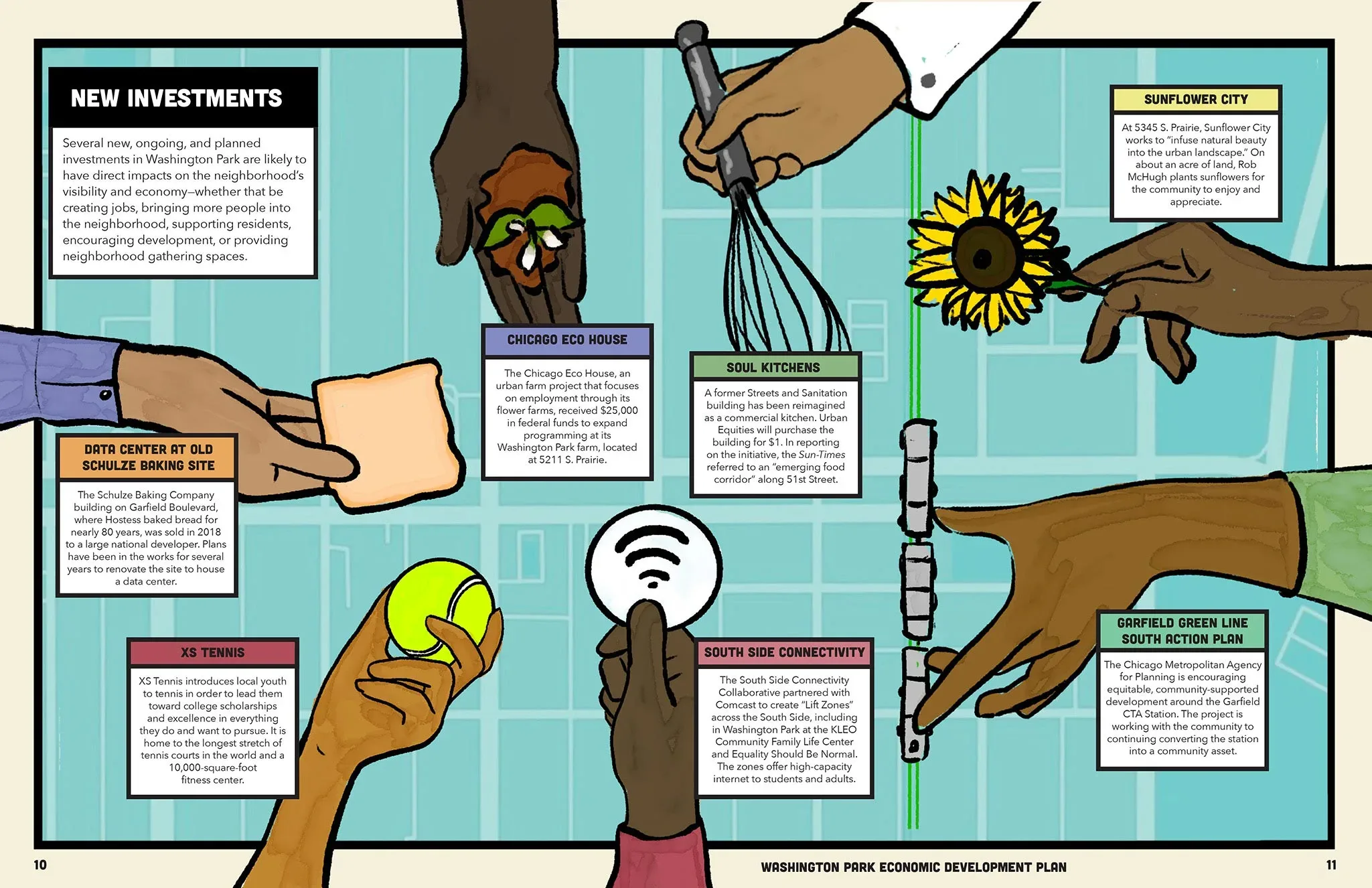
MUSE Method
The planning process and final outcome were designed with Washington Park community members as the primary audience. Focus group conversations with a Resident Action Council, local business owners, and youth offered the project team a nuanced understanding of the issues and opportunities in the community. Business profiles highlighting three woman-owned businesses in the community offer inspiration for aspiring entrepreneurs and unique insights into how the community has shifted over the decades.
The Washington Park Economic Development Action Guide was part of a larger effort led by Chicago Metropolitan Agency for Planning (CMAP) and Elevated Chicago, with a clear focus on opportunities for equitable economic growth in the area immediately surrounding the CTA Garfield Green Line station. Plan recommendations are presented with jargon-free language, engaging illustrations, and clear steps to move the community toward its shared vision.
Past planning and development efforts have overlooked the Washington Park community. Designing the document for a community audience, rather than City staff and officials, empowers residents and community leaders to bring their ideas to life, with guides for how to make the case to political, business, and institutional leaders for investment that meets their needs and desires.
With the CTA Green Line at the heart of Washington Park, transit access is embraced as a community asset. Plan recommendations include advocating for affordable transit-oriented housing, connecting to existing Chicago Department of Transportation (CDOT) Vision Zero infrastructure improvements, and activating vacant storefronts for a more comfortable pedestrian experience.
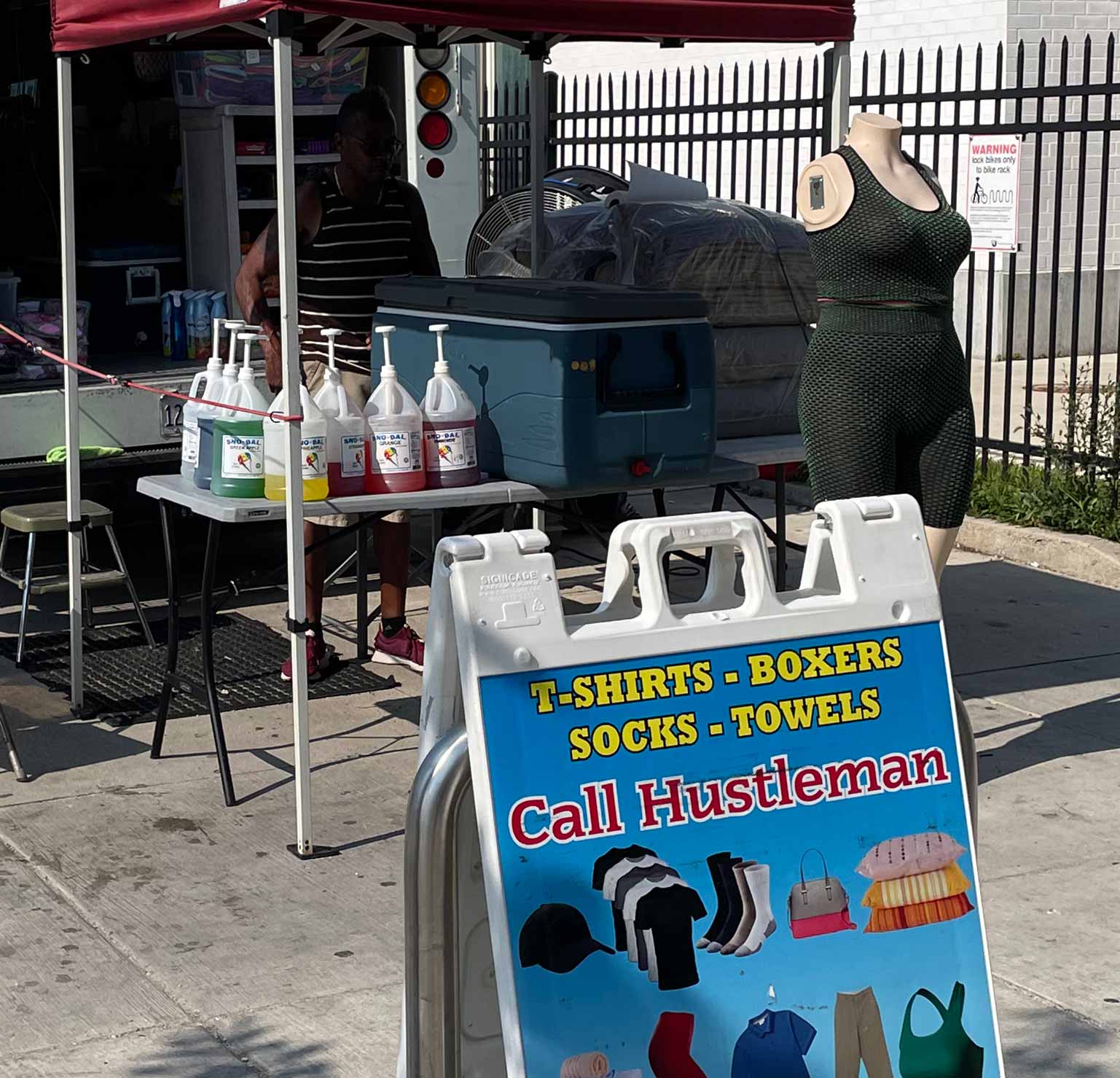
NUMBERS + NARRATIVES
MUSE took a close look at the local economy to help community leaders tell a new story about Washington Park. Most notable is the action guide’s consideration of the “informal” economy and a toolkit for neighbors to conduct their own hyperlocal market analysis. Street vendors and home-based businesses like hair and beauty services, tattoo art, catering, and online craft sales point to local buying power and opportunities for small business incubation.
MUSE took a close look at the local economy to help community leaders tell a new story about Washington Park. Most notable is the action guide’s consideration of the “informal” economy and a toolkit for neighbors to conduct their own hyperlocal market analysis. Street vendors and home-based businesses like hair and beauty services, tattoo art, catering, and online craft sales point to local buying power and opportunities for small business incubation.
COMMUNITY PERSPECTIVES
Here’s what we heard during community engagement for the Washington Park Economic Development Action Guide.
Washington Park can be one of Chicago’s popular neighborhoods to shop and dine. It already has a great foundation.”
Evelyn Shelton
Owner, Evelyn's Food Love
So many community members have been here their whole lives and just need the ability to start a business and all the capital it takes to do that.”
Jacqueline Boyd
Owner, The Care Plan
[Washington Park needs] a technology hub to provide skills training and job support to people of all ages.”
Focus group participant
I was born and raised in Washington Park, so I love everything about it. It has changed in some ways naturally, but my memory of good times at the pool and the parade, and the 63rd Street Beach, all of it, makes me feel at home when I am there.”
Melanie Anewishki
Founder, Featherfist
THROUGH THE COMMUNITY'S EYES
Taking an assets-based approach to the next level, MUSE hired community ethnographers to support the existing conditions phase of this project. Photos and write-ups of community hubs, cherished local businesses, and cultural gems are presented from a truly hyperlocal perspective.
Taking an assets-based approach to the next level, MUSE hired community ethnographers to support the existing conditions phase of this project. Photos and write-ups of community hubs, cherished local businesses, and cultural gems are presented from a truly hyperlocal perspective.
